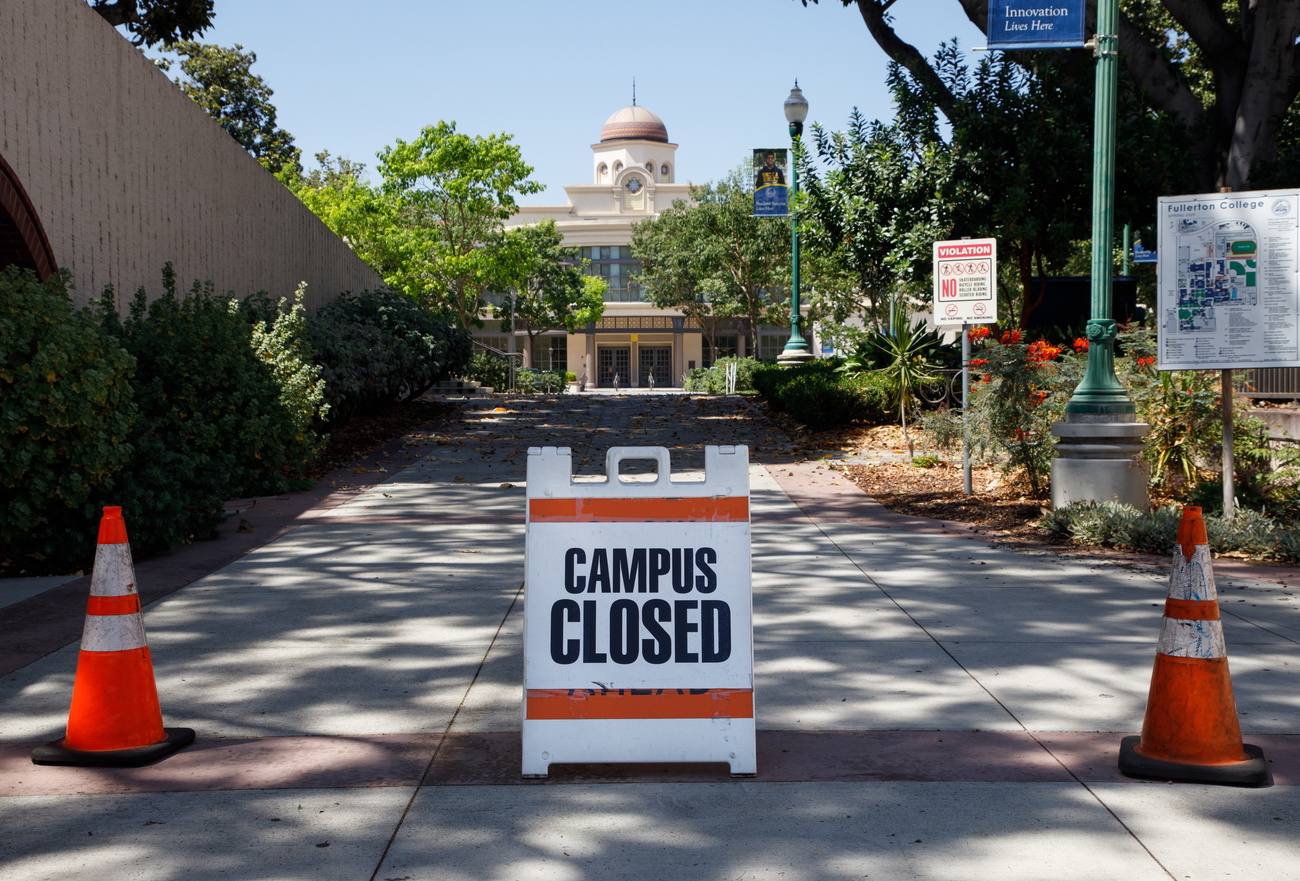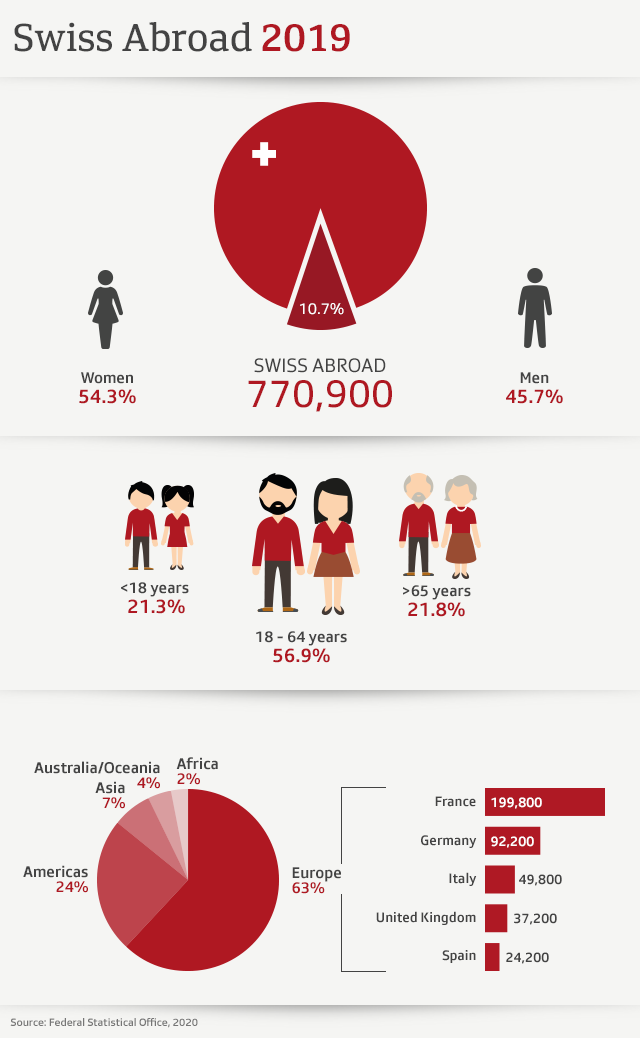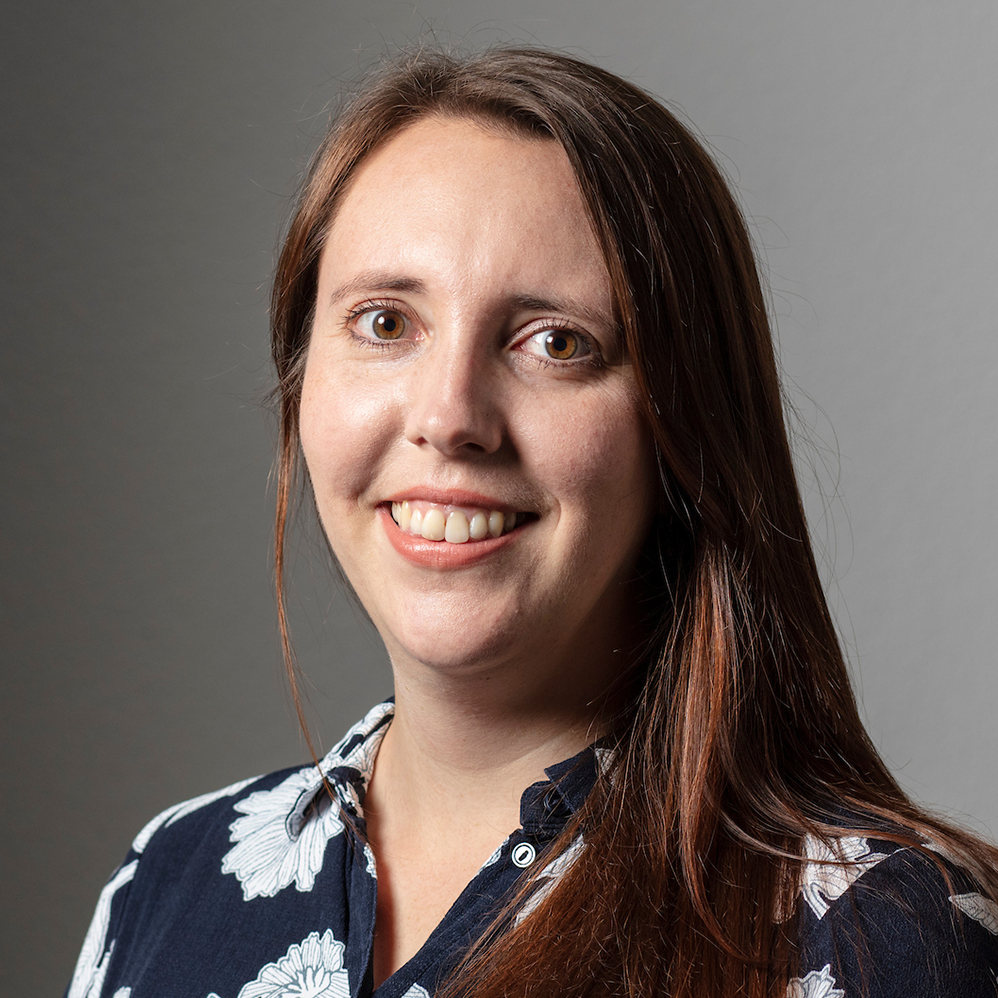
‘No point in staying here’: Swiss expats head home for schooling amid pandemic

Many parents are wondering what their children’s schools will look like next term – virtual or in-person? How many days a week? Things are clearer in Switzerland, where schools largely reopened in May. That has some Swiss families living abroad considering a return to their homeland for their children’s education.
Doris S. left her native Switzerland 27 years ago to travel to the United States. She met her husband there and decided to stay. Now, they live in California with their two children, ages nine and 14. When the coronavirus pandemic broke out in the US, schools closed and classes continued online. In California, it is not certain when the schools will reopen, and the children have been attending online classes since mid-March.
“We weren’t considering moving to Switzerland for our children’s education until about two months ago,” Doris says. When the local school district informed the parents that the governor might cut back on school funding and that public schools were considering staying closed for the fall semester, she picked up the phone to call her father in Switzerland, and they started to plan their move so her children could go to school there.
Doris kept a video diary, and SWI visited the family after they arrived:
Returning for a school year or for good?
Anne M. and Monica B. have similar stories. Both moved from Switzerland to the US many years ago and started families there. Like Doris, they have been considering returning to Switzerland for their children’s education for a while. Both Anne and Monica say that the coronavirus situation has brought a lot of uncertainty and that their children struggle because of not being able to interact with their peers and because online classes are not very effective.
“There will be a big meeting soon, and if the schools decide to go ahead with more distance learning, then I don’t think there will be any point in staying here,” Anne says. Her move to Switzerland would not be permanent, but rather for a semester or up to a year.

More
Fifty shades of democracy: can you measure people power?
Clara G. lives in Panama with her five-year-old daughter. Working in the tourism sector, Clara is currently out of a job. Like in the US, the coronavirus pandemic resulted in a strict lockdown, with schools closing and few options to leave home. Clara had been thinking about returning to Switzerland with her daughter before the pandemic hit Panama and is now considering it more seriously to provide her daughter with a Swiss education. If she decides to move, it will be for good.
Like Clara, Franco C. is considering returning permanently from his current home in Indonesia, where he also works in the tourism sector, to his native Ticino.
“It is really difficult to decide what to do right now for my son and his education,” Franco says. His 18-year-old son just finished high school and Franco is considering a return so his son can attend a Swiss university during the pandemic, with the plan of staying there until graduation.

‘In Switzerland, everyone hikes 24/7’
But what will the move to Switzerland be like for the kids?
“My youngest son thinks that everyone is hiking, 24/7,” Doris says with a laugh. Her children, as well as the others we spoke with, know Switzerland from vacations and stories. These families hope that sending their children to schools and universities in Switzerland help them become more immersed in Swiss culture and discover more about their Swiss roots.
The children will also be attending school in another language. This will likely be manageable, since Doris’s and Monica’s children are attending dual-language schools in the US while Clara and Franco speak their native Swiss languages with their kids. Anne’s kids attended a German summer school. All of the families we spoke with are considering public school for the time the children would be in Switzerland. For Franco and his son, the language will be a challenge in choosing a university.
“My son speaks English and Italian, finding a university here with a curriculum in one of these languages will be difficult,” he anticipates.
Fears and uncertainty
While the others are still in the decision and planning phases of their moves, Doris and her family acted quickly and relocated to Switzerland last week. She has found an apartment in a town in canton Zurich, where she has friends and relatives living nearby. After the required 10 days of quarantine, she will continue organising her children’s school year.
Since Swiss school offices were closed for vacation while they were still in the US, Doris decided to travel first and then contact the schools in question from Switzerland. Her husband will have to return to the US for work, and it’s unlikely that he will be able to come back to Switzerland for holidays. This means the family will be separated, and Doris hopes that in the case of an emergency they would be able to find a way to see each other again.
More
Anne and Monica are also worried about being separated from family. Monica can’t work remotely over many months, so if they decide to make the move, her husband will go to Switzerland alone with the kids.
“Being separated for that long wouldn’t be easy,” she says.
As they decide whether to relocate, Franco and Clara also worry about the job situation. They expect finding work in the tourism sector to be tough and find the idea of starting over daunting after having lived and worked abroad for so long. “In any case, I will keep the doors back to Panama open,” Clara says, “just in case it doesn’t work out in Switzerland”.
On March 13, the Swiss government took the unprecedented move of ordering the nationwide closure of all schools. Compulsory schools (primary schools and lower secondary schools, with pupils aged six to -15/16) mostly went back to full classroom teaching after reopening on May 11. Students in post-compulsory schooling like vocational and baccalaureate schools were only allowed back in small numbers from June 8, leading many of these schools to continue with distance learning until the summer holidays.
Cantons, who are in charge of education matters, are still deciding under which conditions schools will open for the next school year. In mid-July Lucerne became the first Swiss canton to announce that older pupils and staff would likely wear hygiene masks at school after the summer holidays. Canton Ticino plans to make masks compulsory for all schoolteachers in the corridors and the staff room, but not in class. Pupils would not have to wear masks. The registration process for public schools in Switzerland is handled by the cantons. Those looking to send their children to public school must get in touch with the cantonal education authorities.
Here is more information on how the Swiss education system works.

In compliance with the JTI standards
More: SWI swissinfo.ch certified by the Journalism Trust Initiative
































Join the conversation!